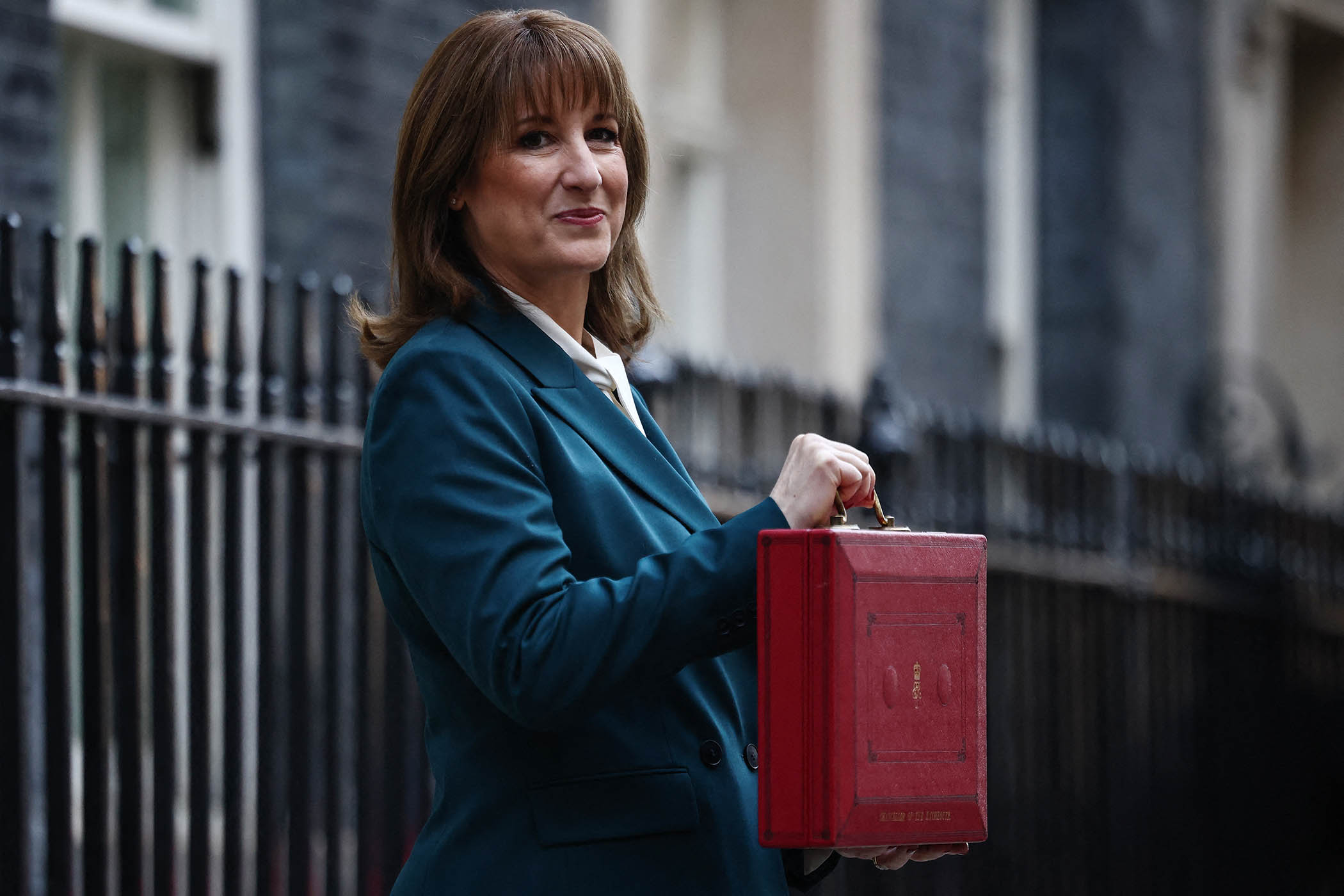In the end it was a budget that belied all the gloom-inducing leaks, frightening kite-flying and the alarming breakfast address to the nation from the chancellor that had so depressed investor and consumer confidence. There are real risks ahead: the plans for future public spending on which the sums depend are implausibly tight and the bulk of the tax increases are back-end loaded to 2028 and beyond, so things could still go wrong. But nonetheless this is a plausible budget that left most observers blinking in surprise at its unexpected, immediate mildness that still squared so many circles – certainly compared with what had been trailed.
Substantial tax increases have been deferred until later in the decade and then delivered via freezing income tax allowance thresholds rather than any rise in income tax rates. Other anticipated tax increases have been vastly scaled back, while some proposals that were widely trailed and feared have been avoided altogether.
And still there is enough cash to scrap the two-child cap so detested by the Labour party, along with paying for reductions in energy bills, freezing rail fares and extending the 5p cut in fuel duties until next September – a worthwhile package that will lower the annual increase in the cost of living by some 0.25% and presage a December interest rate reduction. Small wonder Labour backbenchers enthusiastically waved their order papers, delighted at a recognisably social democratic budget that, as a visibly more self-confident Rachel Reeves had prefigured, conformed to Labour values.
Yet simultaneously she has decisively met her fiscal rules and created a handsome fiscal buffer in five years time – at £22bn, even higher than the £20bn the Debt Management Office privately had recommended.
The nonsense talk of an impending IMF bailout is exposed for what it always was: bonkers rightwing scaremongering
The nonsense talk of an impending IMF bailout is exposed for what it always was: bonkers rightwing scaremongering
The financial markets were pleased, buying UK debt that now looks attractively priced with the UK planning the most aggressive fiscal tightening in the G7. The nonsense talk of an impending IMF bailout is exposed for what it always was: bonkers rightwing scaremongering. She now has to beat off all the pressures on her spending plans, especially on defence and welfare, but has a 50-50 chance of not needing further significant tax increases this parliament.
And if either war or pandemic did prove the trigger for returning for more, both would provide ample political cover if that did happen. Crucially, public investment will continue as planned at the highest sustained level for nearly 50 years – if still lower than the international average – but an important underpinning of economic growth.
Some of the very rich may be concerned about the council tax surcharge on properties worth more than £2m to be introduced in 2028 (although a proportion will consider it reasonable enough), but the rest of the property market will heave a sigh of relief. No widening of council tax bands, no introduction of another higher rate band and no revaluation of property values from the current ludicrous 1991 base. Yet even the wealthy can be content that there is to be no tightening of rules on inheritance tax, on increased taxation of pension fund lump sums or on the rules on lifetime gifts. Before the budget, London’s lawyers had been besieged by well-off parents anxiously gifting assets to their children, all to no purpose.
Some business lobby groups will grumble, but the only industry singled out for a significant tax increase is gambling, raising £1.1bn. Supermarkets have not been spared the new business rate on large premises worth more than £500,000, which they lobbied against. But importantly the rest of business has emerged unscathed. The ruse in which employees could avoid national insurance contributions by sacrificing salary for pension fund contributions has been closed (to raise more than £4bn) – but again all the other mooted tax increases on pensions have not happened.
How is all this possible given the leaks, the extravagant talk of “black fiscal holes” of £40bn or more – and as expected the OBR reducing its projection of trend productivity growth to a mere 1% per year? It seems last year’s £40bn of tax raising meant the starting off point for this year’s budget was never so bad as the Treasury allowed us to think: not an expected black hole of £20bn or more – but £6bn. Nor does the OBR expect an explosion of debt interest, instead forecasting it holding steady at below 4% of GDP. Even allowing for the back-ended tax increases and lower productivity growth, the OBR has trimmed its growth forecasts only fractionally to some 1.5% for the next five years. Factor in wages rising faster than inflation, benefiting the tax yield, and hey presto! The numbers come out favouring this milder than expected budget.
There are risks, but there are also potential upsides. The chancellor spoke warmly of the need to support Britain’s next generation of high tech “scale-ups”. Her “enterprise package” (as trailed in last Sunday’s Observer) – ranging from reforming ISAs to encourage more investment in shares rather than holding cash, a three-year stamp duty holiday on trading in companies newly floated on the stock exchange and varying tax breaks to support entrepreneurial companies (although a reduction in VCT relief) – will be welcomed. They are baby steps, but in the right direction that need to be turbocharged. A vigorous young tech sector could become a significant source of growth by the end of the decade.
Newsletters
Choose the newsletters you want to receive
View more
For information about how The Observer protects your data, read our Privacy Policy
And as the OBR notes, health and disability benefits are billed to grow by £25.9bn in the next five years to an incredible £109bn. If that growth could be halved, the threat to the budget sums would be largely removed – even opening the possibility of relaxing the freeze on income tax thresholds before the next election. The chancellor chose not to announce this welfare battle ahead – but it must loom large in her thinking.
For now, she will be relishing the moment – a firmly social democratic chancellor, the wealthy taxed a bit more, a decisive attack on child poverty, an economy set to grow usefully if not spectacularly, business critics assuaged, high public investment sustained, the bond markets happy and a more than useful fiscal buffer. Despite inevitable detractors, she has bought her and the hard-pressed prime minister some time.
Photograph by Henry Nicholls / AFP via Getty



